- Home
- Cheryl Bolen
Miss Hastings' Excellent London Adventure (Brazen Brides Book 4) Page 3
Miss Hastings' Excellent London Adventure (Brazen Brides Book 4) Read online
Page 3
He couldn't stay in a bedchamber with a maiden. "Please, come with me to the library. There's a matter I need to discuss with you."
She followed him from the chamber. As they began to descend the stairs, the clock struck ten. In the ground floor library, he was thankful his servants had built a fire. The mossy green room was toasty warm. He beckoned for her to sit on one of a pair of sofas that faced each other in front of the fire.
Once seated, he was trying to gather the courage to tell her the grim news when she lowered her brows and asked, "Why did you use the word need?"
He cleared his throat. "Because I need to tell you something before you go bustling over to your uncle's residence."
She gave him a quizzing gaze.
"I'm afraid there's no one at your uncle's house."
"I thought you said you really didn't know my uncle."
"That's true." How in the devil am I going to phrase this?
"When will they return?"
He found himself delaying the response as long as he could. Was that not better—allowing her to ease into the morbid explanation one troubling step at a time? "By they, do you mean the servants? Or your uncle? Or both?" He was quite sure he was bungling things most miserably.
"I suppose both."
He drew a deep breath. "Well, the truth of the matter is that none of them are coming back."
"You mean to tell me my uncle has moved?"
"In a way."
"Sir, he's either moved or he hasn't."
She might look young, but there was a distinct maturity about her. He suspected quite a bit of intelligence lurked beneath that youthful exterior. He needed to be direct. He eyed her solemnly and spoke in a voice even more solemn. "Your uncle has died."
Her eyes widened, but not the slightest sound emanated from her. Tears began to trickle along her fair cheeks. After a considerable length of time, she asked, "When?"
He shrugged. "I think three or four days ago."
"And no servants stayed behind?"
"I am told by my servants that they sought employment elsewhere."
"What about my uncle's burial?"
"I honestly don't know, but I am at your service to find answers."
As quickly as the snuff of a flame, she burst into tears. These weren't soft sobs with the intermittent sniffle. This was a full-fledged wail. Every molecule of her body was involved in the convulsion of tears which erupted like a spewing volcano.
He handed her a handkerchief. As he continued to sit across from her, he'd never felt so utterly impotent. She cried and cried. She wailed and wailed. She sobbed as if she'd just witnessed the death of her own child. His handkerchief was completely saturated with her tears. He began to wonder how so small a body could hold so vast an amount of tears. Was there no end?
After an interminable length of time, the clock stuck eleven. Dear lord, had she been wailing for nearly an hour? How long could this go on? Finally, he gathered the courage to ask, "But, Miss Hastings, it is Miss Hastings, is it not?"
Her tear-splattered face lifted, and she nodded.
"I seem to recall that you told me you'd never met your uncle."
She nodded. "That's correct."
Then why in the devil was she so distraught? "Forgive my impudence, but your reaction to his death seems somewhat out of proportion to your connection with him."
She sniffed. "Which makes me seem abominably self centered." Sniff. Sniff. "I'm crying for me. For my future." Wail. Wail. "Or my-y-y-y lack of future." Long wail.
"I would say a young woman like you has a bright future."
She blew her nose and attempted to stop crying. "Since I was my uncle's only living relative, he was going to have me learn about his business. He planned to leave it to me."
"But if you're his heir, it will still come to you."
"Fat lot of good it will do me in Upper Barrington. Because I am an unmarried woman, Aunt Harriett will never allow me to live in London, and . . . " She began to bawl again. "I'd rather die than return to Upper Barrington."
Her aunt must be quite the dragon. "Then you are not of age?" Were she of age, she surely could take her inheritance, hire a companion, and make her own home away from Upper Barrington.
"Not for seven months."
"We shall have to think on your problem, but first we need to discover who your uncle's solicitor is." A helpless little female like her was ill equipped for so urban an undertaking. He would have to help her.
* * *
Perhaps Mr. Birmingham wasn't always such a sot. He was being awfully helpful to her. It was quite ingenious of him to dispatch one of his most resourceful servants to Uncle Simon's house to pick the lock.
At first she'd been horrified to be part of such a dishonest activity, but he assured her it was to be considered her house now that Uncle Simon was gone, since she was his only blood relative.
Now she and Mr. Birmingham were in her uncle's library—which wasn't nearly as lovely as Mr. Birmingham's—looking for private papers. She'd been moping around, getting to know a bit about what kind of man Uncle Simon had been by the possessions he'd amassed, the books he'd read.
Unlike Mr. Birmingham's books, which were all classic titles with fine leather bindings, her uncle's were a jumble of assorted subjects and a hodgepodge of bindings, but all looked well read. Unlike Mr. Birmingham's.
Uncle Simon was obviously not a reader of poetry but had a great fondness for travel journals. What a pity he'd repressed his desire to see the world to tend to his business interests in London. Was that why he wanted her to come? Had he planned to have her see to the business while he spent the last years of his life seeing all the places he'd spent a lifetime reading about?
While Mr. Birmingham's home was lovingly looked after, her uncle's was not only cluttered, but it also was not clean. Or perhaps only the library was off-limits to the servants. Had he forbidden his servants to dust and tidy this chamber? It was obvious he spent a great deal of time in this room. The seat of the upholstered chair nearest the fire had been worn to a half-moon shape, and the work table beside it bore circular stains from where glasses had been set.
Her gaze flicked to the other side of the fireplace. That must be where her uncle's guests sat. Indeed, right next to the chair there—a chair that did not appear well used—sat an empty wine glass.
She wondered if the man drinking from that glass might have been the last to see her uncle alive. She shook her head. What an active imagination she had! For all she knew, Uncle Simon had dropped dead at his place of business.
She needed to know more. As his only kin, she needed to know how he'd died and where he'd died. She wanted to know what had killed him.
A pity there were no servants left to answer her questions. If only she had come a few days earlier. If only she'd had the opportunity to meet her uncle.
More than anything, she was curious to know what kind of man he was. How sad that just as their lives were about to intertwine, she was deprived of him. Something inside her ached from the loss.
"Ah, ha!" Mr. Birmingham said after he'd searched through the contents of one of Uncle's desk drawers.
She'd been hesitant to initiate such a search herself. It seemed so disrespectful of the dead. "His solicitor's name is Wycliff. Hugh Wycliff on High Holborn. Hmm. Not far from my solicitor's. Come, Miss Hastings, let us go."
Chapter 3
Once again Miss Emma Hastings was reduced to timidity when she found herself riding with Mr. Birmingham in his lavish carriage. Its luxuriousness was quite beyond anything she had ever seen. The sumptuous seats of pale green velvet were trimmed in a rich gold braid that matched the tassels upon the window curtains. She wondered if the threads were made of real gold. A second son he might be, but Mr. Birmingham was unquestionably rich.
It was rather surprising, really, how kind he was to her—a complete stranger. Would it not have been easier to just offer his coach and dispatch her to High Holborn? It was as if he—an unquestionable so
t—empathized with her. How could a man of such privilege so well understand the difficulties facing a lone young woman in a strange city many thousands of times larger than anything she'd ever seen?
Perhaps his kindness was likely to preserve himself from having to endure another session of her tearful hysterics. She must have sounded like gypsy wailer. It mortified her still that she had put on such an exhibition in front of him.
But, truth to tell, she could easily launch into another sobbing fit at the very thought of returning to Upper Barrington.
She wished to express her gratitude to him, but it was as if she'd lost her tongue. She felt so inadequate, like a barnyard hen beside a magnificent peacock. Mr. Birmingham must be accustomed to being with beautiful women who were genteel, well-dressed and clever members of the haute ton.
What must he think of her? She peered down at the sprigged muslin dress she'd sewn with her own inferior hand. Aunt Harriett insisted all her day dresses be constructed only of that girlish, modest fabric. Her lack of sophistication would be even more evident by her hand-knitted red shawl. From the glimpses of haute fashion she had observed in the pages of Ackermann's, she knew the young ladies in London would wear fine merino or velvet pelisses over their morning dresses.
Because of the trajectory of her thoughts, she finally came up with something to say to him. "I suppose Maria was very beautiful."
He was silent for a moment before answering in a woeful voice. "The most beautiful woman I've ever seen. I fell in love with her the first time I saw her upon the stage." Turning to Emma, he added, almost boastfully, "She's an Italian opera singer."
"You met her in Italy?"
He shook his head. "I've never been to Italy. She came to London for an exclusive performance. She'd been the toast of Naples."
Even though Emma had never seen Maria, she would vow that every man in that audience must have half fallen in love with the lovely opera singer. What man wouldn't be honored to win such a woman's affections?
But to Emma's thinking, it was Maria who had been the lucky one to have won Mr. Birmingham's affections—even if he was frightfully attached to the bottle. He was a very fine looking man. And exceedingly kind. And enormously wealthy. "When did you meet her?"
"Three years ago."
Emma might be a provincial, but she knew enough of the world to know that men did not marry women like Maria. They kept them as mistresses. (Much of Emma's education came from reading the Society columns in the London newspapers to which Aunt Harriett subscribed to.) A man with Mr. Birmingham's wealth would have been able to give the Italian woman anything his fortune could procure.
"She was your mistress?"
He did not meet her gaze but spoke crossly, eyeing his lap. "That is not a topic fit for a young lady's ears."
What had come over her? Emma knew better than to have asked so personal a question. "Forgive my impertinence."
"I daresay you're just unaccustomed to Society."
After they reached the address of Mr. Wycliff's establishment, Mr. Birmingham's coachman opened the door and lowered the step for them.
Mr. Birmingham was kind enough to offer his hand when she disembarked. How interesting it was for her to observe real barristers hurrying along the pavement in long, tightly curled white wigs and flowing black robes.
Every new sight and sound in the Capital exhilarated her. This city's vibrancy never waned, be it day or night. Such a diversity of people and professions she had never thought to see. Upper Barrington to London was like bread crumbs to a royal feast.
There was so much more she wanted to see. If only she didn't have to return to Upper Barrington. She knew if she went back, she'd never leave. She'd die an old maid just like her aunt. No man there was suited to be her life's mate.
Just as terrifying, once Aunt Harriett died, Emma wouldn’t even have a home in Upper Barrington. Therefore, she had been all the more grateful to her uncle for offering to share what he had with her.
Mr. Birmingham proffered his arm, and they entered the three-story building which housed the offices of Mr. Hugh Wycliff.
They located Mr. Wycliff's place of business on the second floor. The solicitor's clerk, a bespectacled man not much older than Emma, looked up from reading one of many dozens of bulging folders which cluttered his desk. "May I help you?"
Mr. Birmingham spoke. "Miss Hastings wishes to see Mr. Wycliff regarding her uncle, the late Mr. Simon Hastings."
The clerk nodded, rose from his desk, and went to an adjoining room. Seconds later he reemerged. "Please, come this way, Miss Hastings. Mr. Wycliff can see you now."
Mr. Wycliff's office was devoid of the piles of papers which cluttered the outer office. His corner office was lighted by eight tall windows and warmed by a red-brick fireplace.
The white-haired, well-fed gentleman stood when she entered, the expression on his face suitably grim, given the sad nature of her visit. "I offer you my most sincere condolences, Miss Hastings."
She nodded solemnly as he beckoned her and Mr. Birmingham to sit in the chairs opposite his desk. Even after he'd muttered his condolences, his face remained solemn and he refused to meet her gaze. Several seconds passed. He gave no indication he would initiate a conversation.
Finally, Mr. Birmingham spoke. "Miss Hastings arrived in London last night at her uncle's invitation, only to learn of Mr. Hastings' death."
"Very unfortunate," said Mr. Wycliff, shaking his head sorrowfully. "Just in the prime of life."
While five-and-fifty sounded quite old to Emma, she realized to a man of the solicitor's advanced years, five and fifty might seem young. "I would like to know when my uncle died."
Mr. Wycliff counted upon his fingers, mumbling under his breath. "Four days ago."
"He's been buried?"
"According to his wishes. He was laid to rest on Tuesday."
"Where?" She was surprised at the moroseness in her own voice.
"In the churchyard of St. Mary Magdalene."
She looked at Mr. Birmingham. "Do you know where that is?"
He nodded solemnly.
Her gaze returned to Mr. Wycliff. "I'd like to know more about my uncle's death. Had he been ill?"
"Not to my knowledge. He was fit and energetic. Seemed younger than his years, and he never missed a day going to his place of business in Southwark."
Her brows lowered. "Then what killed him?"
He shrugged. "We know not. A stomach complaint. His housekeeper said that he must have suddenly turned ill. All the servants had off Sunday, and when she went into the library on Monday morning, she found his body. He'd . . . excuse my indelicacy, Miss Hastings, but there was evidence that he'd . . . cast up his accounts, so to speak."
Tears sprang to her eyes, but this time—to her relief—she spared the present gentlemen her embarrassing display of wailing. The potent earlier tears had been for her own loss of hope. Now they were for her poor uncle. "How sad that he died alone."
Mr. Wycliff inclined his head. "Indeed."
"Miss Hastings would like to take possession of the house on Curzon Street," Mr. Birmingham said. "Do you have the keys?" That he'd been so quick to change the morose conversation convinced her that he feared she'd launch into another crying fit.
Mr. Wycliff nodded. "Your uncle's housekeeper—she's the one who originally came to tell me of his death—gave them to me yesterday after all the servants left."
"Do you know where I could reach her?" Emma asked. She would like to ask Uncle Simon's uppermost servant about him. Her eyes misted again. Now she would never know him.
"Let me see," the solicitor said, opening a drawer of his desk. "I put her direction somewhere. I knew I'd have to contact her regarding her legacy in your uncle's will. Mr. Hastings made provisions for his upper servants." He took out a piece of paper. "Oh, yes. Mrs. Thornton has taken a position at 151 Camden."
He copied it to another piece of paper and handed it to Emma.
Mr. Birmingham stood. "We'll just collect
the keys and be on our way."
The solicitor did not respond. He did not make eye contact with either of them, but sat frozen in his chair for a moment. Finally, he eyed Mr. Birmingham. "I'm afraid I can't do that."
"Why?" Mr. Birmingham asked.
"Because the house does not belong to Miss Hastings."
Chapter 4
"What do you mean?" Adam demanded. "Is Miss Hastings not the man's next of kin?"
"Indeed she is. In fact, as far as the deceased was able to determine, Miss Hastings is his only living relation."
Adam's intense gaze locked with the solicitor's. "Does the law not state that the next of kin is entitled to the deceased's property?"
"In the event the person dies without a will," Mr. Wycliff clarified.
"Miss Hastings was led to believe—by Simon Hastings himself—that she would come into his property when he died." Adam turned to Miss Hastings. "Is that not so?
Her face stricken, she nodded.
The solicitor cleared his throat. "That happened to be the case. Until last week."
"What occurred last week?" Adam demanded.
"Mr. Simon sent me a new will."
Adam glanced at Miss Hastings, whose brows dipped over widened eyes. He hoped to God she didn't start bawling again. He whipped back to Wycliff and spoke harshly. "He sent it to you? Is that not unorthodox? Doesn't a client typically tell you what he wants and have you put it into the proper legal terminology?"
"That's correct. But, as Miss Hastings surely knows, her uncle is . . . was a very busy man. Ceylon Tea was his life, and as co-proprietor of the company, there were always demands on his attention."
"That's why he asked me to come," she said, her voice almost a whimper. "He needed to train to someone take over many of his duties." Her voice hitched. "In fact, he said his half of the business would come to me when . . . " She stopped and drew an unsteady breath. "When he died."
Adam stepped closer to the solicitor, his hands fisted. "Does the business still come to Miss Hastings?"
Mr. Wycliff shook his head morosely.

 With His Lady's Assistance (The Regent Mysteries Book 1)
With His Lady's Assistance (The Regent Mysteries Book 1)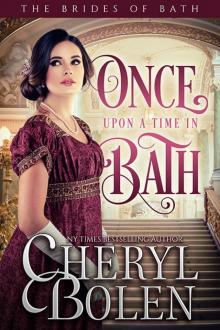 Once Upon a Time in Bath
Once Upon a Time in Bath One Room at the Inn (The Lords of Eton Book 4)
One Room at the Inn (The Lords of Eton Book 4) His Lady Deceived
His Lady Deceived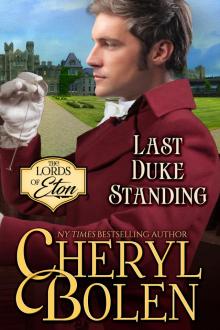 Last Duke Standing
Last Duke Standing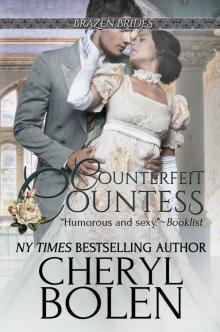 Counterfeit Countess: Brazen Brides, Book 1
Counterfeit Countess: Brazen Brides, Book 1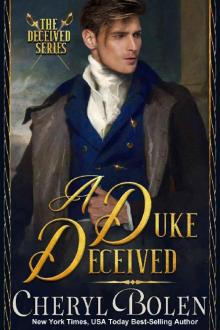 A Duke Deceived (The Deceived Series Book 1)
A Duke Deceived (The Deceived Series Book 1) An Egyptian Affair (The Regent Mysteries Book 4)
An Egyptian Affair (The Regent Mysteries Book 4) Winter Wishes: A Regency Christmas Anthology
Winter Wishes: A Regency Christmas Anthology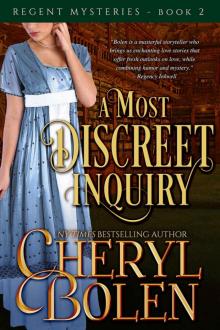 A Most Discreet Inquiry (The Regent Mysteries Book 2)
A Most Discreet Inquiry (The Regent Mysteries Book 2) The Portrait of Lady Wycliff
The Portrait of Lady Wycliff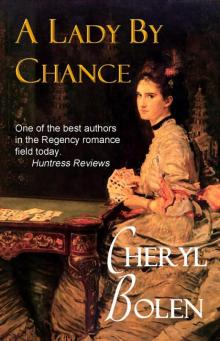 A Lady by Chance (Historical Regency Romance)
A Lady by Chance (Historical Regency Romance)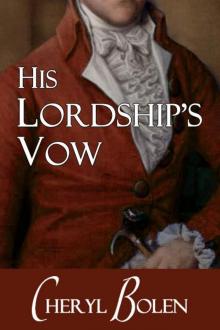 His Lordship's Vow (Regency Romance Short Novel)
His Lordship's Vow (Regency Romance Short Novel) Lady Sophia's Rescue (Traditional Regency Romance)
Lady Sophia's Rescue (Traditional Regency Romance) A Birmingham Family Christmas
A Birmingham Family Christmas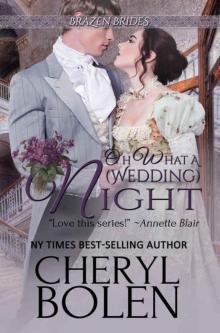 Oh What A (Wedding) Night (Brazen Brides #3)
Oh What A (Wedding) Night (Brazen Brides #3)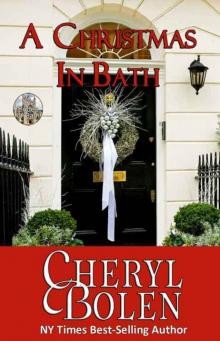 A Christmas In Bath
A Christmas In Bath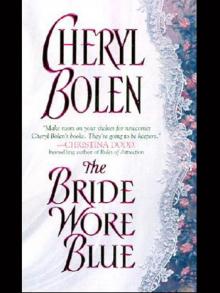 THE BRIDE WORE BLUE
THE BRIDE WORE BLUE Miss Hastings' Excellent London Adventure (Brazen Brides Book 4)
Miss Hastings' Excellent London Adventure (Brazen Brides Book 4)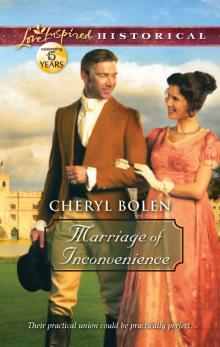 Marriage of Inconvenience
Marriage of Inconvenience Ex-Spinster by Christmas: House of Haverstock, Book 4
Ex-Spinster by Christmas: House of Haverstock, Book 4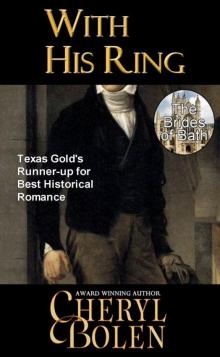 With His Ring (Brides of Bath Book 2)
With His Ring (Brides of Bath Book 2)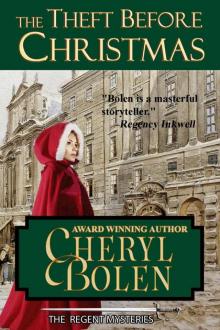 The Theft Before Christmas (The Regent Mysteries)
The Theft Before Christmas (The Regent Mysteries)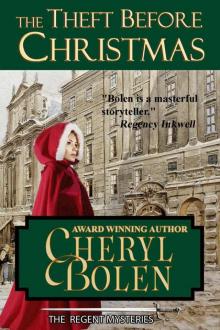 The Theft Before Christmas
The Theft Before Christmas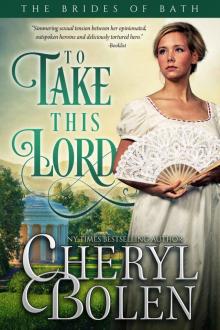 To Take This Lord (The Brides of Bath Book 4)
To Take This Lord (The Brides of Bath Book 4)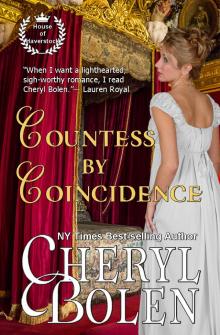 Countess by Coincidence
Countess by Coincidence Captivated by His Kiss: A Limited Edition Boxed Set of Seven Regency Romances
Captivated by His Kiss: A Limited Edition Boxed Set of Seven Regency Romances A Birmingham Family Christmas (Brazen Brides Book 5)
A Birmingham Family Christmas (Brazen Brides Book 5)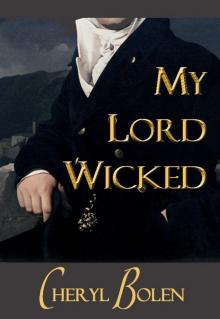 My Lord Wicked (Historical Regency Romance)
My Lord Wicked (Historical Regency Romance) A Duke Deceived
A Duke Deceived The Earl, the Vow, and the Plain Jane
The Earl, the Vow, and the Plain Jane The Bride's Secret
The Bride's Secret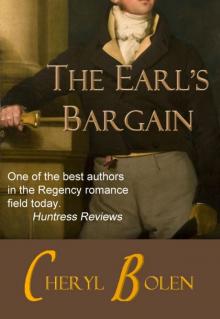 The Earl's Bargain (Historical Regency Romance)
The Earl's Bargain (Historical Regency Romance) Rebels, Rakes & Rogues
Rebels, Rakes & Rogues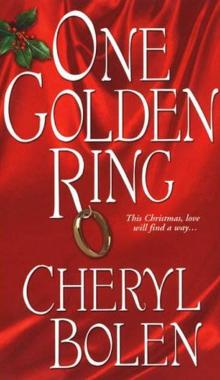 One Golden Ring
One Golden Ring